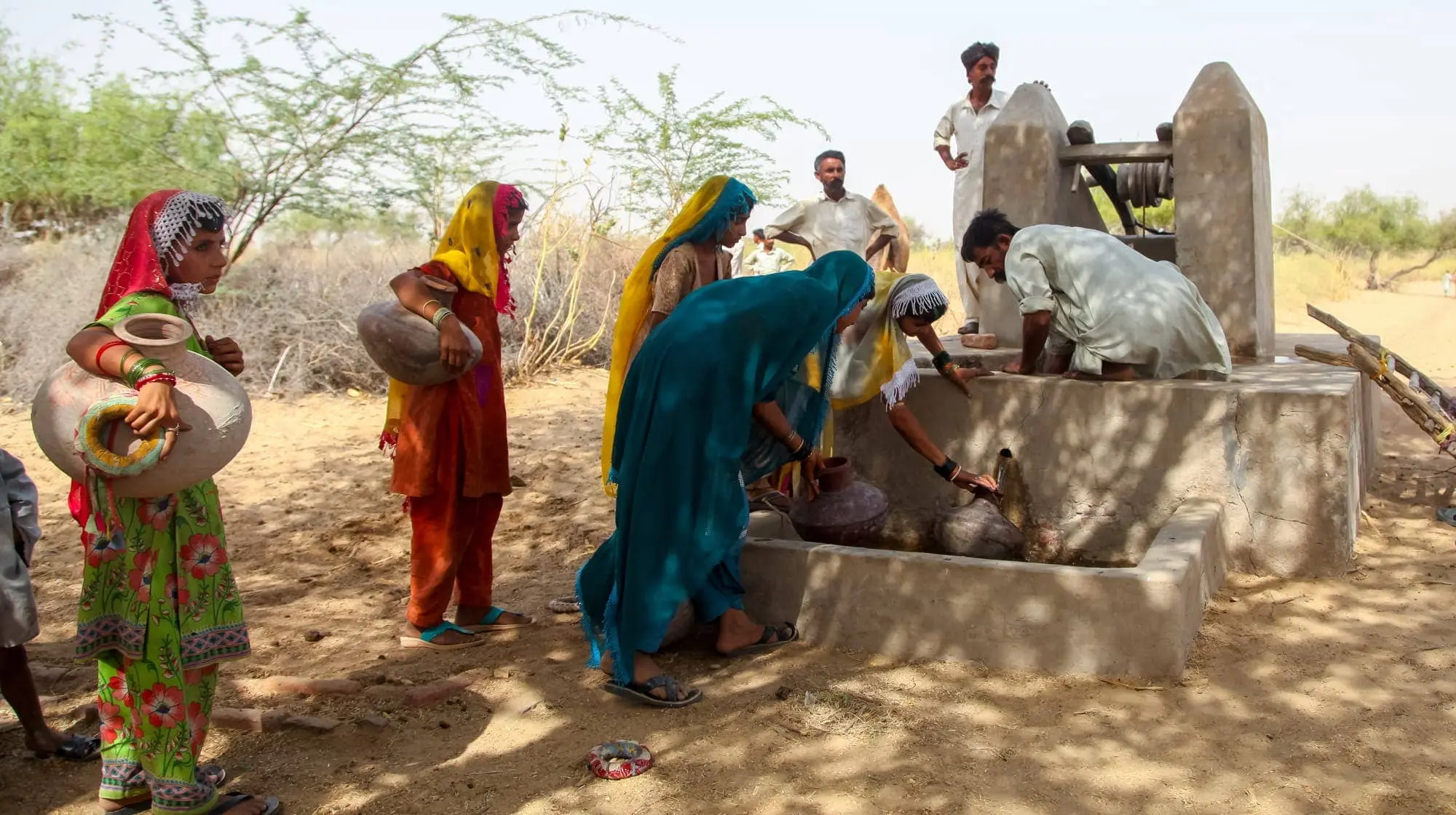Local Capacity Strengthening for Response (LCS4R)

In order to address gaps in emergency preparedness and response, the Local Capacity Strengthening for Response project (LCS4R) provides training to strengthen the institutional capacity of community-based organizations (CBOs), local NGOs (LNGOs), and national NGOs (NNGOs) to prepare for and respond to humanitarian crises and better engage with the international and national humanitarian systems. Funded by the U.S. Agency for International Development's Bureau for Humanitarian Assistance, the LCS4R project is spearheaded by International Medical Corps in collaboration with Concern Worldwide and implemented through a consortium that brings together a combination of operational and technical expertise. The LCS4R began in February 2021 and provides comprehensive, institutional capacity-strengthening activities to NGOs and LNGOs through three components:
The program is structured around the following three components:
Component 1: Intensive capacity strengthening support to 10 LNGOs and NNGOs in East Africa and South Asia
NNGO Selection Process
- 130+ organizations from across four countries (Ethiopia, Malawi,Pakistan, and Bangladesh) applied in late 2021
- A comprehensive review of the applications, including interviews, and references checks, was conducted based upon seven criteria, resulting in a shortlist for presentation to a Selection Committee
- The Selection Committee chose 3 NNGOs from Ethiopia, 2 NNGOs from Malawi, 3 NNGOs from Pakistan, and 2 NNGOs from Bangladesh
- Memoranda of Understand were signed with each of the 10 selected NNGOs. These outlined the roles and responsibilities of all the parties.
Training Workshops
- The LCS4R project team hosted two in-person five-day training workshops: one in Kenya (May 2022) for NNGOs from Ethiopia and Malawi; and one in the United Arab Emirates (June 2022) for the NNGOs from Bangladesh and Pakistan.
- Each workshop included 25 participants made up of five senior managers from each of the ten NNGOs
- The training curriculum was delivered over five days and involved a blend of training sessions, discussions, peer learning and guest speakers. The core subjects covered included: risk management, leadership, NGO funding models, human resources, PSEA, logistics & supply chain, communications, change management, humanitarian standards and principles
Organizational Capacity Assessments (OCA)
- A comprehensive Organizational Capacity Assessment (OCA) tool, composed of 13 organizational systems, was developed by the LCS4R project team and the Subject Matter Experts (SMEs) and assessed over 320 components of these systems
- As part of the OCA process, the project developed and delivered 13 webinars for over 300 managers, board members, and technical experts from the 10 participating NNGOs detailing the main components and functions of the organizational systems
- NNGOs completed these assessments and collaborated with SMEs to develop capacity-strengthening plans to address the identified capacity gaps and implement their development priorities.
SME Support and Mentorship
- Support, both in person and virtual, was provided to the NNGOs to implement the capacity-strengthening plans
- SMEs have delivered 87 virtual and in-person capacity strengthening sessions to the NNGOs, and this support will continue until the end of the project.
- Approx. 390 participants have been supported through these sessions
- 11 (five-day deployments) by the SMEs have been completed across four countries, and these will continue until the end of the project.
- In some cases, NNGOs have been brought together for support (both virtual and in person) and this has contributed to peer learning and building connections between the 10 component one NNGOs.
Localization Webinar Series
- A webinar series on Localization was designed and delivered between February and June. 35 senior leaders, board members and other NGO staff participated in the four webinars. The webinar series provided an overview of recent developments and policies as well as global commitments and initiatives on Localization.
- During the webinars, participants explored the organizational systems, skills, and knowledge required to implement locally led humanitarian action effectively.
- The webinar series also provided opportunities for the NGOs to share effective practices for engaging with the humanitarian architecture, advocate for change and create and sustaining more equitable and effective partnerships with national and international humanitarian actors.
Component 2: Hands-on learning, skill-building, and networking for 240 humanitarian practitioners to enhance their capacity to respond to emergencies
Symposia
Symposium events held in Malawi in June 2023 and in Bangladesh in July 2023 provided an opportunity to extend capacity strengthening to approximately 70 CBOs and LNGOs from disaster-prone areas in Ethiopia, Malawi, and Bangladesh.
During the symposiums, participants had the opportunity to develop skills in designing and managing organizational systems for emergency response and peer learning opportunities.
The symposium events also provided opportunities for networking and promoting effective disaster response practices led by NNGOs, LNGOs and CBOs.
Each symposia was composed of two different activities:
- Training workshops for NNGOs working in disaster response. The selected NNGOS were smaller than those selected under component 1. The workshops were 3 days each and were repeated in the same location. There were 40-45 participants (2-3 participants from each organization) at each workshop.
- The second activity was a 1-day networking event held in Lilongwe, Malawi and Dhaka, Bangladesh. Approximately 50 participants from a range of organizations (NNGOS, INGOs, UN, Government, Donors) were brought together to network and discuss key themes in relation to NNGOs and emergency response. It gave an opportunity for NNGOs to present on their work and for the LCS4R team to share more about the project.
Component 3: A platform that serves as an online collection of materials compiled throughout the duration of the Local Capacity Strengthening for Response (LCS4R) project as well as resources that were designed in conjunction with national and local NGOs.
Knowledge Management Platform
Local Humanitarian Response Hub
The new Local Humanitarian Response Hub is live and available for NGOs and humanitarian professionals worldwide. The Hub was designed with the aim of strengthening core organizational systems such as finance, human resources, and procurement. It provides a selection of downloadable tools, guidelines, and a variety of key resources specifically curated for NGOs to enable them to better respond to humanitarian emergencies.
To visit the Local Humanitarian Response Hub, please click here: localhumanitarian.org

